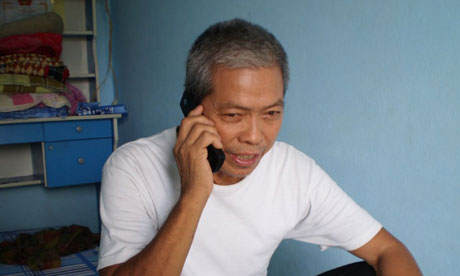by Emilee Gaebler
Impunity Watch Rep0rter, South America
CARACAS, Venezuela – Election changes have just been announced in Venezuela by Tibisay Lucena, the president of the National Electoral Council. Presidential elections traditionally take place in December of election years. In the upcoming 2012 election year, the Venezuelan Presidential election has been moved up to October 7.

President Chavez tweeted, “7 October 2012: your destiny is written! We will write another revolutionary victory on your page! We will live and we will conquer!” as a response to this announcement.
Chavez, who announced his intention to run for re-election earlier, will be up for a third term in office and a victory will place him in power of Venezuela for a consecutive 18 years. In 2007, Chavez attempted to modify the Constitution, which he had drafted, to allow him to run for re-election for a third term. This move was unsuccessful.
Again, in 2009, Chavez sought to strike down term limits and amend the Constitution. This move was highly controversial as it was noted that Constitutional amendments are only permissible once per congressional term. Despite the reservations of this being an unconstitutional act, Chavez was successful, paving the way for his upcoming 2012 campaign.
Earlier this summer, in June, Chavez announced that he was battling cancer. On June 20 he had a tumor removed in Cuba and since then has undergone multiple rounds of chemotherapy. He announced Tuesday that he will start a final round of chemotherapy soon. He expects to be at full strength when he begins campaigning in December.
Approval ratings for Chavez stood at 70% at his 2006 re-election. Current polls place his ratings at roughly 50%. Opposition parties point out that moving the election date forward makes it harder for other candidates to successfully challenge Chavez. They note that this is a particularly opportune time for rival parties due to the President’s weakened position.
Instead of receiving a full year in which to campaign, the candidates will only get eight months to mount a successful opposition. MercoPress reports that political analyst Luis Vicente Leon believes shortening the campaign period will favor Chavez because an effective opposition needs to spend extensive time traveling around the country, meeting people and gathering support. Additionally, Chavez’s unlimited access to broadcast hours makes him the most recognizable politician in the Venezuelan arena.
The National Electoral Council is justifying their decision by citing a need to separate national from regional and local elections. Regional and local elections of governors will still take place in December. Tibisay Lucena claims this division is to benefit voters, so they can focus on each election, instead of having the Presidential race overshadow the others.
For more information, please see;
Americas Quarterly – Date Set for Venezuela’s 2012 Presidential Election – 14 September 2011
El Universal – Venezuelan Electoral Body Decides to Separate Elections – 14 September 2011
Latin American Herald Tribune – Venezuela Sets Presidential Elections for 7 October 2010 – 14 September 2011
MercoPress – Venezuelan Presidential Election Moved Forward to 7 October 2012 – 14 September 2011



